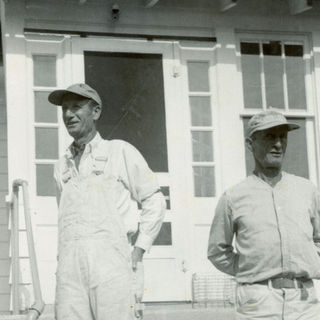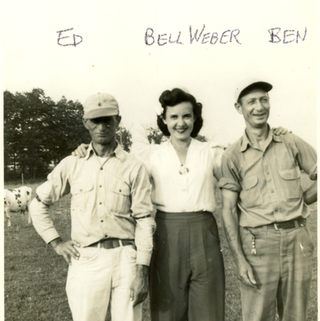
The Stavitsky Family
Click on the images below for more details
About
The Stavitsky narrative begins with Elias and Riva Gitel Stavitsky. One of the forty-three founding families, the couple reached Alliance on May 10, 1882. Before settling the area, Eli and Moses Bayuk scouted out the land that would eventually become the Alliance Colony. Fleeing the violence in the Russian Empire, Eli and Riva Gitel were unable to take many personal items with them. However, recognizing the importance of religion to the new community, they were able to bring a Sefer Torah, which included the five books of Moses.
Eli and Riva had two sons and a daughter. Feshel (nicknamed Fish), the oldest son, married Shifra Hoffman. The couple had four sons and a daughter. When the Jewish Agricultural and Industrial Aid Society (JAIAS) denied Fish's application for funding to purchase a nearby farm, he looked to Philadelphia for opportunities. In 1907, a typhoid epidemic struck the area and Fish died at thirty-three years old.
For the first year after her husband's death, the JAIAS gave Shifra and her children a stipend of $10 a month. However, she was denied additional support the following year and was forced to take steps to ensure her children were taken care of. She left Jacob, her eldest son, with Eli and Riva Gitel on the farm, while the other boys, Eddie, Ben, and Barney (ages nine, six, and five) were taken to the Hebrew Orphan Home of Philadelphia. Her daughter, Rose, only about two years old at the time, stayed with her.
Determined to keep the family close, Shifra found work at a sewing factory in Philadelphia. Traveling to the orphanage by streetcar, she took Rose to see her brothers as often as possible. At the time, the orphanage divided the children by age group. Eddie lived with the older boys while his brothers Benny and Barney were placed in the younger boys home. Because they were young when they first arrived at the orphanage, Benny and Barney apparently forgot they had an older brother. Their love of sports, specifically baseball, eventually brought them together again. Once Barney and Benny graduated to the older boys section, they began to hear stories about the baseball talents of their older brother, Eddie "Sweeney" Stavitsky.

Barney and Benny with the Hebrew Orphan Home of Philadelphia Baseball Team.
Eventually, the boys were old enough to leave the orphanage altogether. They secured work in Philadelphia and lived in a row house with their mother and sister. In the meantime, Jake was still living and working on Eli and Riva's farm, which he inherited upon the deaths of his grandparents. He asked his brothers to come back and help him in exchange for living there. Eddie and Benny took him up on the offer, while Barney remained in Philadelphia with Shifra and Rose. He came back to the farm to help on weekends.

Rose Stavitsky reading on the farm.

Shifra Stavitsky on the farm.
The boys embraced life on the farm, making community connections and long-lasting friendships. Besides farming, the boys had a business doing odd-jobs like painting. Rural life suited them well and, in their spare time, they were often found fishing the Maurice River, hunting, or searching for arrowheads.

Fred Chalmers and Ben Stavitsky at work.

Barney Stavitsky with a fish, 1942.
Source:
Kinsella, Tom. Growing American: The Alliance Agricultural Colony in South Jersey-A History. Galloway, NJ: South Jersey Culture and History Center, 2021.
Click below for a short excerpt of Rose Stavitsky's oral history interview.

"The Immigrants," poem by Rose Stavitsky.

Rose Stavitsky, Graduation, 1925.

























